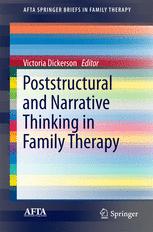

Most ebook files are in PDF format, so you can easily read them using various software such as Foxit Reader or directly on the Google Chrome browser.
Some ebook files are released by publishers in other formats such as .awz, .mobi, .epub, .fb2, etc. You may need to install specific software to read these formats on mobile/PC, such as Calibre.
Please read the tutorial at this link: https://ebookbell.com/faq
We offer FREE conversion to the popular formats you request; however, this may take some time. Therefore, right after payment, please email us, and we will try to provide the service as quickly as possible.
For some exceptional file formats or broken links (if any), please refrain from opening any disputes. Instead, email us first, and we will try to assist within a maximum of 6 hours.
EbookBell Team

0.0
0 reviewsThis brief applies variations in poststructural thinking and practice to the field of family therapy. Poststructural thinking pervades the world of therapeutic practice in ways that are often invisible to both the theoretician as well as the practitioner. In this brief, the authors focus on what poststructuralism has brought to our understanding. What follows are chapters that speak to training and teaching principles as well as to practices that draw on ideas about “becoming,” “relationality,” and “the aesthetics of engagement." Each chapter builds on the other with the last one reprising a key component of narrative understanding. From a teaching institution in Auckland, NZ to an online training program in Minneapolis, from new thinking about “auto-ethnography” to a “de-centered” practice to “poetic” resistance, the chapters in this brief offer exciting ideas and practice possibilities.